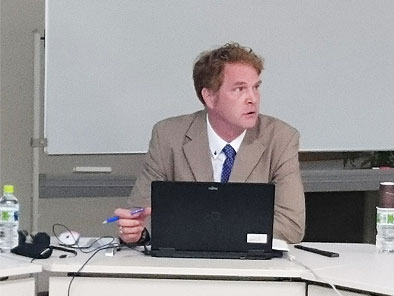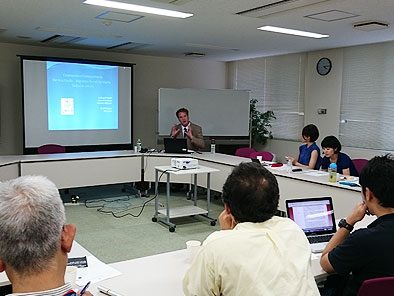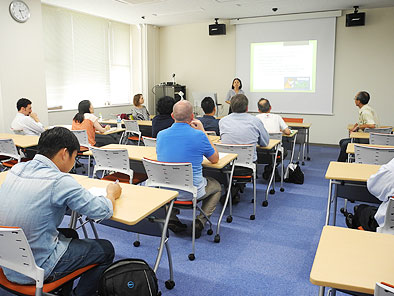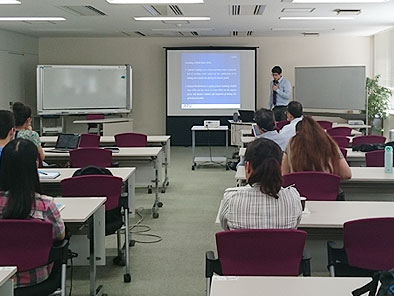NOTICES
November, 2014
Oct 20, 2015

The 13th Asia Pacific Conference (AP Conference) will be held at Ritsumeikan Asia Pacific University on November 7-8, 2015. The theme for this year's conference is "Societal Transformation in Asia Pacific: Charting the Waves of Change" and there will be presentations from various fields of study. Everyone is welcome to attend the event.
- Event Name:
- Asia Pacific Conference
- Theme:
- "Societal Transformation in Asia Pacific: Charting the Waves of Change"
- Date:
- November 7 (Sat) – November 8 (Sun), 2015
- Venue:
- Ritsumeikan Asia Pacific University (APU), Beppu City, Oita Pref., Japan
- Application Deadline:
- October 30 (Fri), 2015
- Website:
- https://www.apu.ac.jp/rcaps/page/content0103.html/
- Contact:
- apconf@apu.ac.jp (APU Research Office)
◆What is AP Conference?
Every year, the Ritsumeikan Center for Asia Pacific Studies (RCAPS) holds an international Asia Pacific Conference (AP Conference) aiming at becoming a Center of Excellence.
◆What is RCAPS?
The Ritsumeikan Center for Asia Pacific Studies (RCAPS) was established in July 1996 as a lead-up to the opening of Ritsumeikan Asia Pacific University (APU). Aiming to be a "Center of Excellence" for Asia Pacific Studies, RCAPS holds research meetings and international symposiums, conducts research projects and joint research, disseminates APU research results, and strengthens the network of researchers and research institutions around Japan and across the world.
Research Office
- TOPIC
- カンファレンス
Oct 19, 2015
On September 30, 2015, RCAPS welcomed Professor Lawrence E. MARCEAU (Senior Lecturer in Japanese, University of Auckland)to give a lecture entitled, "Appropriating Aesop's Fables in Early Modern Japan: The Asianization of the Mediterranean".
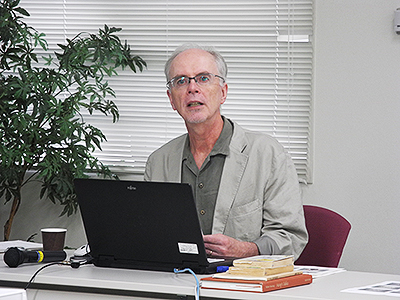
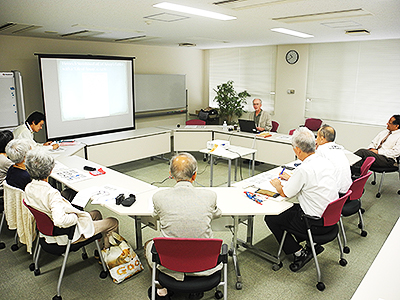
In this seminar, Dr. Marceau examined the transformation of European-language editions of Aesop’s Fables into the early modern Japanese cultural idiom, and explored the significance of the decisions made in this transformation. In 1593, the first translation of Aesop’s Fables appeared in a non-Western language, Japanese. The product of the Jesuit Mission Press in Amakusa, Kyushu, the Fables were rendered into the local colloquial dialect and were printed using the Roman alphabet. Subsequently a separate translation of the Fables was made in standard written Japanese, using Kanji and Kana orthography. This translation was reprinted over the 17th century by several different publishers, and finally in 1659 a woodblock illustrated edition circulated. In this edition, Aesop himself appears as a character, but instead of being depicted as a Mediterranean, he is dressed as a Japanese. The other people he encounters are also depicted as Japanese, Chinese, Korean, or other Asian ethnicities. Dr. Marceau concluded his presentation with a question and answer session. This presentation attracted the participants’ attention and some of them expressed their interests about the process how the Fables were diffused among the people in Kyushu area in the early 17th century.
- TOPIC
- セミナー
Jul 16, 2015
On July 15th, 2015, RCAPS welcomed Professor Roger D. Smith (Associate Professor, University of Kyushu)to give a lecture entitled,
"Cosmopolitan Communities in the Asia Pacific : Migration Trends for Highly-Skilled Residents in Metropolitan Centers in Asia".
- TOPIC
- セミナー
Jul 16, 2015
On July 2nd, 2015, RCAPS welcomed Professor Naoko Kojima (Assistant Professor, Doshisha University) and Ms. Monica Hamciuc (Lecturer, Miyazaki International College) to give a lecture entitled,
"Teaching Japanese Foreign Policy to Japanese Students in English"
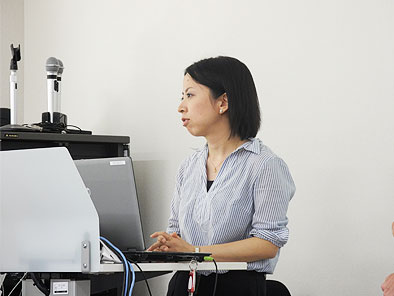
Professor Naoko Kojima
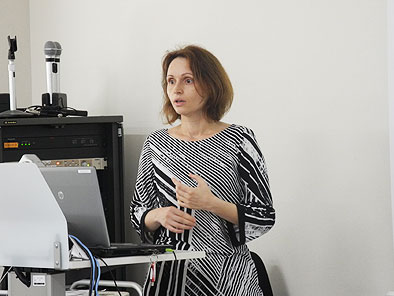
Ms. Monica Hamciuc
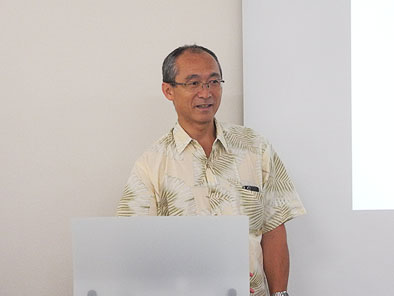
Chair; Professor Yoichiro Sato (APS)
- TOPIC
- セミナー
May 29, 2015
On May 20, 2015, an APU Master's students' presentation session was held.
The Master's students who received the 2014 RCAPS Master's Student Field Research
Support subsidy presented.
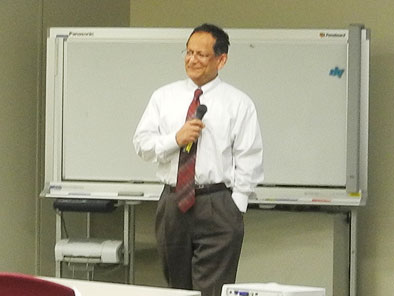
Chair: Professor Haidar
- TOPIC
- 研究活動




